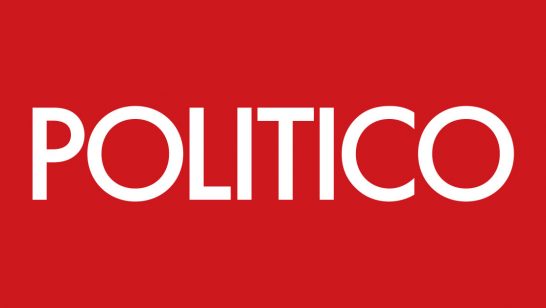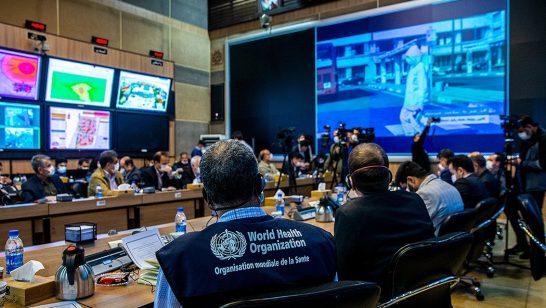
In 2009, then-Vice President Joe Biden gave the first major Obama-era foreign policy address at the Munich Security Conference (MSC). In it, he stated a firm belief in the importance of the transatlantic security relationship with Europe and offered a “reset” with Russia to cooperate on pressing global challenges, including the Iranian nuclear programme. The following month, former US Secretary of State Hillary Clinton presented Russian Foreign Minister Sergei Lavrov with a red button that said “reset” on it in English. However, the Russian translation of “reset” that accompanied it was incorrect and actually meant “overload”. As the button was moved to a glass case in the Russian Ministry of Foreign Affairs museum, an “overload” is precisely what happened.
Despite some achievements in the first Obama term, the Russian annexation of Crimea in 2014 and subsequent deterioration of relations proved to block progress on a range of issues. However, the Obama administration had the wherewithal to know that when it comes to certain problems, such as those related to nuclear non-proliferation and disarmament, the US could not allow oscillations in the bilateral relationship with Russia to shut off dialogue. In turn, two of the crowning achievements of US-Russia relations after the crisis in Ukraine included the continued implementation of the 2011 New Strategic Arms Reduction Treaty (New START) and the conclusion of the 2015 Joint Comprehensive Plan of Action (JCPOA), or Iran nuclear deal.
As now-President Biden returns to the MSC stage over a decade after his aforementioned “reset” with Russia, a different renewal is in order: one with Europe. Biden hopes to use the opportunity to brandish his transatlantic credentials, and there is no better place to start than announcing bold action to restore the JCPOA. When the US unilaterally abrogated the Iran nuclear deal in 2018, it threw sand in the face of Europeans who had been anxiously conducting shuttle diplomacy between the US and Iran to keep the accord alive. The surprise announcement by former US President Donald Trump that the US would exit the deal and reimpose sanctions was a watershed moment for European officials. They were fully aware that this would make their populations less safe as Iran could (and would) increase its nuclear program whilst regional tensions flared in the background on Europe’s doorstep.
The fallout between the US and Europe over their divergent views on the JCPOA during the Trump era turned the accord into a “sacrificial lamb” for much wider debates on the need for European autonomy and self-reliance on economic and security and defence issues. European had always been accustomed to depending on friendly relations with Washington, but they then realised that this would not always be guaranteed. While an intellectual shift happened in this regard that is perhaps fundamentally irrevocable, European willingness to act on it was more difficult to create cohesion on. It would require unlearning the well-engrained psychological impulse to stand with the United States no matter what. As Europe now seeks to “speak the language of power”, it should welcome the US back with cautious optimism and the expectation that the US will begin to deliver on damage control. There is simply no better place to start than on Iran and the nuclear deal.
Over the last twenty-four hours, positive signals have begun emanating from Washington regarding diplomacy over the JCPOA. Two weeks after Iranian Foreign Minister Javad Zarif indicated a willingness to work with the United States under the auspices of the European Union to restore the JCPOA, US State Department Spokesperson Ned Price said that “the United States would accept an invitation from the European Union… to discuss a diplomatic way forward on Iran’s nuclear program.” Such news will be welcomed by the EU, which has offered to choreograph a US and Iranian return back to full implementation of the deal’s terms.
While other European countries, namely the United Kingdom, France, and Germany – or the E3 – have been closely involved in efforts to sustain the deal over the last three years, they had been waiting to hear from the new US administration on what was politically viable and desirable. Some wanted to scope out the room for further negotiations with Iran from now on nuclear limitations and its ballistic missile programme. However, for the EU, what is politically desirable under present dire circumstances has always been clear: fully restoring the JCPOA before moving on to dealing with other important issues with Iran and other players.
Biden has a unique opportunity today to hit two birds with one stone: bring America back to the table with Europe and also Iran. Munich would be a particularly poetic place to make such an announcement because it was Germany that led the charge to call for greater European economic independence from the US when it became clear that the Trump administration was threatening its own allies with sanctions over Iran. In turn, the Munich Security Conference would be a smart platform from which Biden could state both a formal revocation of the US withdrawal from the JCPOA and unveil an economic step to help kickstart diplomacy in the context of rebuilding trust with all involved.
Relying on political gestures alone to halt the planned Iranian rollback of voluntary transparency measures under the JCPOA as early as next Tuesday would be a grave mistake. In order to give Iranian President Hassan Rouhani, Foreign Minister Javad Zarif, and others adequate political cover to argue to the conservative-leaning Iranian parliament that a good-faith diplomatic process has now begun and should not be derailed, there has to be something tangible to show for it.
Three ideas that I have recently outlined with Esfandyar Batmanghelidj includes the US greenlighting the $5 billion loan that Iran requested from the International Monetary Fund (IMF) in the context of the pandemic. Iran meets the technical assessment for the loan, and the funds could be handled in a way that would assuage concerns of Iran hawks that they would be used improperly. The other options include giving Iran access to its own funds held overseas to be used for at least humanitarian trade in the present moment or to issue oil waivers to help relax stress on the Iranian economy on a temporary basis whilst diplomacy is underway.
One thing that is often missing from conversations on the JCPOA is that the reimposition of US sanctions affected not only Iran, but also US allies in Europe and other partners around the world. Taking any one of these three steps would help the US showcase adequate goodwill to not only Iran but also Europe and the wider international community, whilst falling short of issuing full sanctions relief until a diplomatic and technical plan is agreed upon. After the last four years, political gestures will fall flat. For a “reset” in transatlantic security relations on Iran and the nuclear deal, the answer has to be economic.
The opinions articulated above represent the views of the author(s), and do not necessarily reflect the position of the European Leadership Network or any of its members. The ELN’s aim is to encourage debates that will help develop Europe’s capacity to address the pressing foreign, defence, and security policy challenges of our time.
Image: Wikimedia Commons



